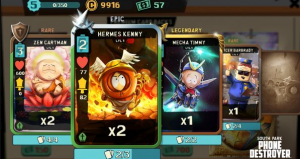We’ve talked about feedback loops before and how powerful they are to motivate someone to keep playing a game. Given their popularity, the F2P genre has been making use of their own feedback loop to ensnare people into spending money. For today’s post, we’re going to talk about why this works and the harm it can do to game balance.
What is a Feedback Loop?
As always, let’s begin by defining feedback loops (for more, you can watch the video linked below).
The most popular example of feedback loops in video games are positive feedback loops: Which provide a repeatable set of actions that create progress within the game. One of the simplest and effective positive feedback loops is the ARPG cycle: Fight Monsters: Get Loot: Become Stronger.
A negative feedback loop is designed to reduce the effectiveness of the positive one to keep it in check. In video games, if the negative feedback is too strong, it can create a downward spiral where continuing grows harder and harder until the player stops.
For F2P games, they’re not about creating negative feedback, but exploiting positive to get people to spend.
Power to the Winners:
Converting a free player to a paying one is a big deal for any F2P game. Once there is that investment, it becomes harder for that person to quit playing. The F2P feedback loop is best seen in competitive or PVP-based systems, and is built around tying progress to winning.
You will see the following in some way, shape, or form in most of these titles. First, the game will only provide rewards when you win, not play the game. If you played 10 matches and only win 2, then you have wasted the time spent playing the other 8.
The next step is to introduce daily or frequent goals built on winning X matches. These rewards usually have a limit; some games allow you to spend premium currency to add more. You will always get more for completing these goals compared to just winning matches over the course of a day.
And then the final step is to have a ranked/ladder-based PVP mode. The higher the player goes in the ladder will provide them with more rewards at the end of the event. Season play provides the best rewards in the game outside of limited time events.
Ultimately the goal of these options is simple: Equate winning with progress. Once a player starts winning at the game, the rewards they earn will carry them. We can now define the F2P Feedback Loop as:
Win Matches: Earn Rewards: Get Stronger
However, the only way to start that feedback loop for most players is to make that initial purchase. In most cases, a paying player will be able to beat a non-playing one simply due to the abstraction being in their favor. “The rich getting richer” applies to these games, thanks to the rewards earned.
This is why I find talks about tournament or Esports-level discussions on F2P games questionable. Yes, the contestants may not have spent money on their options now, but I want to know what they spent lifetime-wise on that game. Again, once someone has reached the point where they are reliably winning most of their matches, those wins will replace the need to spend money.
I know what some of you are thinking right now: “If winning provides rewards, how do you continue to get money from winners?” And the answer is what happens when all those winners are all grouped together.
The End Game Arms Race:
As we’ve said, once people are in the F2P feedback loop, they will begin surging ahead of the other players; specifically the non-paying ones. At some point all the top players will be put together at the end of the ladder/season play. Now, the difference in power between the players begins to shorten, because everyone has access to the best cards/options.
For games that have fixed options like CCGs, this is where the competitive aspect really takes off. It’s no longer about hunting for cards to beat players, but about using what’s there to build the best decks. In Gwent for instance, there is both a regular ladder and a “Pro” ladder for high-ranked players.
For these players, the allure to spend money is pretty much gone. Any new cards added should be easily obtained by hoarding the rewards they win from their daily matches. This is why CCG titles aren’t as bashed for their F2P economies compared to other games. Eventually, you should have the cards you need and will not have to spend money.
However, when we’re talking about gacha-based progression, things go a bit differently. Because options can be leveled up to become more powerful, just having the best cards/characters is not enough. This is where the arms race continues, as players fight for micro leads by leveling up their options. The level cap can be extended indefinitely; along with the requirements to keep going up.
What ends up happening is that we have three groups of people playing the game: Free players who are in the lower to middle tier, those who spend to reach the middle to high tier, and the top players at the highest point jockeying for position.
The more people who spend money to reach the top, the more of a pay wall becomes established for the game. And once that happens, it becomes very hard to keep someone motivated to play when they know they have no way to get past that point unless they open up their wallet.
Consolation Prize:
Fighting against this issue has a very short answer and a longer one. The easiest way is obvious: Don’t sell power to the player. If you are going to go that route, either by choice or forced by a publisher, then you must provide free players a chance to progress. Time should matter when it comes to rewarding the player.
Allow players to earn a pack or get rewards by simply playing matches; with greater rewards for those who win. The point is that no one should feel like they’re wasting their time unless they win. As we’ve talked about before, when the player realizes that they’re being forced to spend money, they’re going to leave the game.
Time and Money are equally important to consider, and you must respect both if you expect people to keep playing your game.
Winner, Winner:
Too often it feels like F2P designers are only focusing on the short-term gain of whales and paying for power. If you want a healthy community for your game, then you must provide options to all the players.


